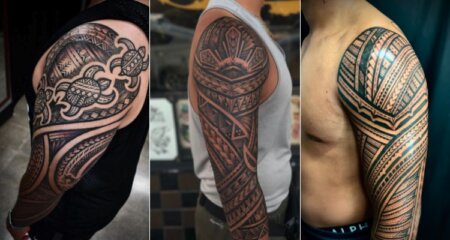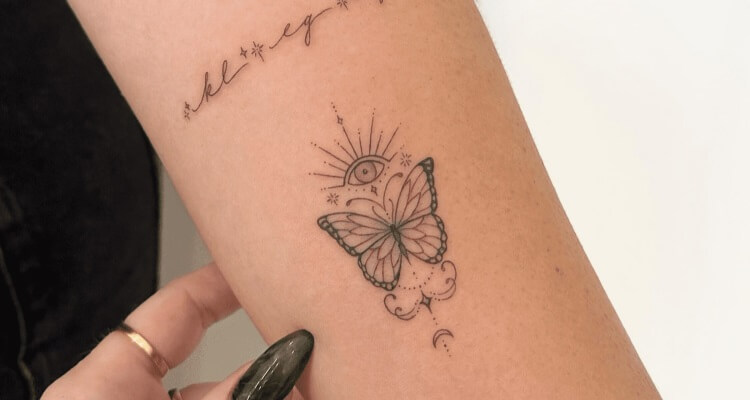
Tattoo Healing Process: Timeline, Stages & Aftercare Tips
Posted on
If it is the first time to get a tattoo then the first thing that would probably cross one’s mind is healing. The tattoo design, size and placement on the body are contributing factors in the process of healing a tattoo. Speculations have established a timeframe as to how long the tattoo can exist for the healing to be complete.
In this article, we will discuss all you need to know about the day by day tattoo healing period. To keep memories capture your tattoo healing stages in pictures so you can observe the process. You will also get to learn about the tattoo healing process stages in this post. So, there is nothing to worry about! As you scroll you will get detailed information on what you should do or avoid after inking a tattoo on your skin.
Stages of Tattoo Healing
Getting a tattoo is a major decision with many steps to be taken that range from deciding on a thoughtful design to finding the right artist and caring for it afterward. Each step along the tattoo-making process is vital to maintaining a vibrant piece of ones body for life. When it comes to tattoo healing there are different phases of healing these need to be understood before stepping into the tattoo world. The stages are an important factor in a tattoos healing process every week. Approximately how long your tattoo will take depends primarily on size and placement. Ink recovery can go through three different stages whereas the healing of a large tattoo may occur in four different stages.
If its your first time getting a tattoo you will have pictures of the tattoo healing period as you read on! Each stage of the healing process will prepare you for what to expect.
STAGE NO. 1: Inflammation Phase (Days 1-6)
After your skin has been inked with a tattoo it will get swollen and turn red. This will happen either immediately or within the first three days. It is normal to experience blood oozing out of the tattooed part of your skin. The artist of the tattoo will instruct you about the aftercare procedure.
Do not be alarmed if you notice fluid being released from the tattooed area this is commonly referred to as weeping. You will experience the swelling for a week but do not hesitate to consult your doctor if it gets longer.
STAGE NO. 2: Scabbing Phase (Days 7-14)
The wounded skin starts to shed naturally this process usually takes from the second to the fourth week. The skin gradually returns to its natural form. The peeling of your wound on its own is a sign that your tattoo is healing. It is important to steer clear of picking or scratching the scabs or flakes as this can cause ink loss.
STAGE NO. 3: Regeneration Phase (Days 7-14)
As your recovery progresses you will notice your skin layers will begin to change. This is the stage wherein you will experience itching on your tattooed area. The itching on your tattoo is a sign of healing. Additionally, your tattoo may appear dull. This usually happens because a new layer of skin forms over the ink. Whenever you feel itching it is important to avoid rubbing or scratching your tattoo as it can damage your design. It is recommended to use a fragrance free moisturizer to relieve itching without irritation. Placing an ice pack or rubbing gentle lotion will help control the itching if it gets beyond your control get a doctors advice.
STAGE NO. 4: Skin Remodeling Phase (Days 15-30)
This is the final stage which usually starts to occur from day 15. Your tattoo starts to look vibrant at this stage. This happens because the outer layers of the skin are fully repaired. However, deeper layers of skin are still in the healing stage even if the top layer has healed. Your skin in this stage is healing beneath the dermis. Even if you start to see a noticeable improvement on the topmost layers of the skin it is important to keep your skin moisturized and protect the tattoo from direct sunlight.
How Long Does the Tattoo Healing Process Take?
Some of the factors include in the process of healing:
- Tattoo Size and Placement: The size of the tattoo and its placement determines the tattoos healing time. For example, larger or more detailed pieces take longer to heal than small sized tattoo designs.
- Aftercare Routine: Poor aftercare can prolong the healing process it is important for you to consistently clean and moisturize your new inked tattoo as this speeds up the process.
- General Health: A person having a healthy lifestyle and immune system heals faster compared to people having poor lifestyles and low immune systems.
- Skin Type: Time needed for the different stages depends on the type of your skin. People with tender skin types will take longer compared to normal standards.
- Tattoo Technique: A tattoo created by a professional artist heals quicker than that which was done by an amateur tattoo artist.
The estimated period it takes for the tattoo to heal while taking its final form is one month to three months. It might take about 2 to 4 weeks for the surface layers of skin to heal. However, complete healing of deeper layers could take up to 3 to 6 months. If your tattoo has a detailed design and vibrant colors then the healing may take a little bit longer and avoid picking at scabs or exposing the tattoo to excessive sunlight or water.
Tattoo Healing and Aftercare Tips
It is important to follow those instructions religiously to get your tattoo healed on time.
1. Keep your tattoo clean
You should tend to your tattoo as you tend to a newly injured area BE CLEAN AT ALL TIMES. However, if you do not feel like suffering infection clean the affected area with a soap that’s antibacterial together with distilled water. Ensure using tattoo friendly soaps to help clean your skin. After that, apply your moisturizer, but only on a dry region.
2. Keep the surface moisturized
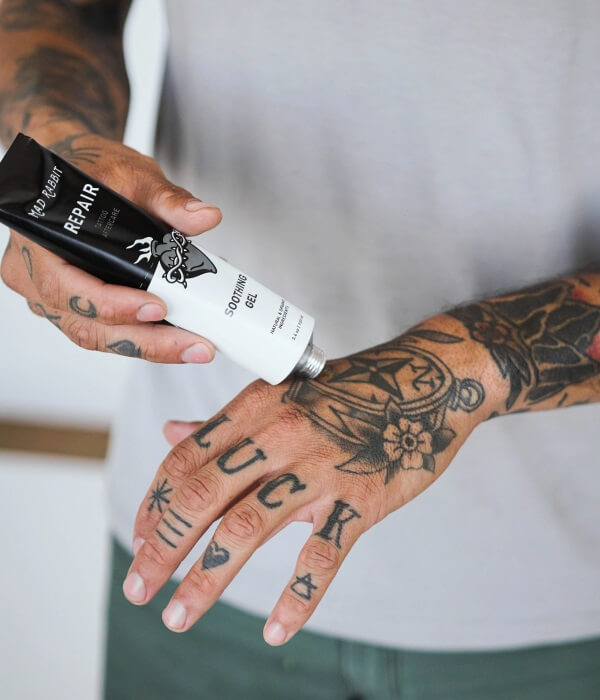
Another aftercare tip you should not miss is to keep the tattooed area moisturized. Always apply the ointment or moisturizer on the tattooed region. Lubricating the area with a good quality moisturizer will prevent itching and any likelihood of infection as well. Do not use any ointment that can cause skin irritation or allergies. Make sure to invest in tattoo friendly ointment or moisturizer. Your moisturizer should be alcohol free, fragrance free and chemical free.
3. Protect your tattoo from sunlight
Avoiding direct sunlight is essential during the initial days following a tattoo. Therefore, it avoid going out during the daytime and if it is important to go out then make sure you wear clothes that will cover the tattooed area so that it is not exposed to sunlight.
4. Avoid removing the scabs
Itching and scabbing are part of the recovery process that can not be ignored. This is an irritating phase wherein you may want to remove scabs or scratch the area. But doing so can damage your tattoo. So, it is advised to control your emotions even when you desperately want to scratch the area or pick the scabs. In such a situation all you can do is keep it moisturized so you do not get tempted to scratch the scabs. If you do not control yourself you will damage your tattoo image.
5. Avoid indulging in water sports
It is recommended to avoid indulging in water sports such as sauna baths, swimming or any other kind of water sport. Additionally, you should avoid taking long baths for a few days after you have got a tattoo. Water can be damaging to your tattoo.
6. Do not indulge in strenuous activities
Strenuous activities such as exercise, gym, etc. all these can lead to sweating and it can damage your tattoo. Therefore, avoid doing exercises that may lead to excessive sweat. You may go for light walks (if you wish to).
7. Avoid consuming alcohol
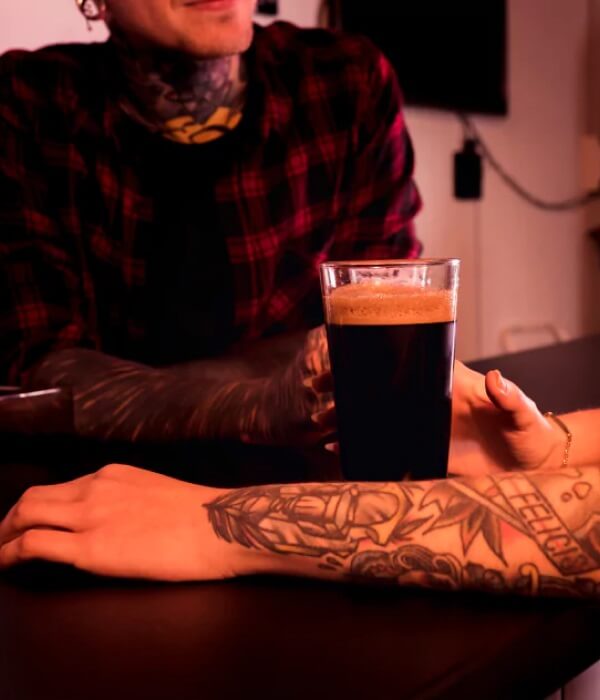
Avoid consuming alcohol before and right after getting your tattoo. Taking alcohol just before the tattoo can affect your design adversely because alcohol thins the blood. Also, do not consume alcohol for at least 24 hours after you have gotten the tattoo.
8. Eat healthy and stay hydrated
Keep a healthy diet and drink plenty of water to be well after your tattoo application.
Let us now see the FAQs.
Frequently Asked Questions
1. Can You Wear Any Clothes After Your Tattoo Session?
No, it is advisable to wear clothes that are not tight so you do not ruin your tattoo design. Make sure it covers the tattooed area but is not tight!
2. When Can You Expose Your Tattoo?
You can peel off the paper covering your tattoo after the first three days since it gets etched on your skin, but always ensure you seek guidance from your tattoo artist regarding what you are supposed to follow some will advise exposing the tattoo a few hours after the process.
3. When Can I Resume Work After Getting A Tattoo?
You can return to work the day after getting a tattoo unless your job entails immersion in water, being outside during the day, exposure to the sun and engaging in strenuous activities. These can affect your tattoo. So, if your work entails any of these then it is advised to speak to your artist for the right guidance.
4. Can I Go to my Swimming Classes After The Tattoo Session?
No, You are strictly not allowed to swim or engage in any water sports once you get your tattoo. So basically, it is recommended to pass the minimum period of 2 to 4 weeks after getting your tattoo when you want to dive into swimming activities or any other kind of water sports. You should also avoid bathing for long periods because water can cause extreme damage to the tattoo.
5. How Long Does It Take For A Small Tattoo To Heal?
In general small tattoos take around 15 to 20 days to heal. However, it is a must to take proper care of your tattoo to avoid infection and heal faster.
Conclusion
Now you have all the necessary information needed to maintain a good recovery process. These healing process and aftercare tips will keep your tattoo shining. Make sure to properly follow your artists aftercare instructions. Following your artists instructions will help you have a mesmerizing tattoo design for a very long time. Additionally, it is important to keep a record of images of your tattoo recovery. Not only will it make the experience more fun but it will also help you take immediate action in case of any issue related to tattoo healing. For more clarity if you are unsure of the healing process get pictures of the tattoo recovery stages for reference purposes. It is important to take care of your tattoo at every stage. Proper care ensures the ink settles evenly.
Happy Tattooing…

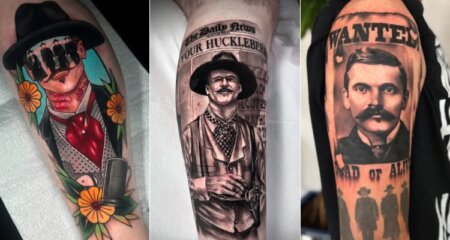
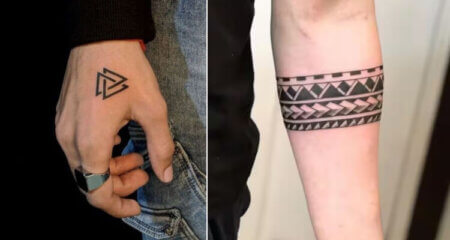
![30 Best Cobra Tattoo Ideas, Designs And Meaning [2025] 30 Best Cobra Tattoo Ideas, Designs And Meaning [2025]](https://www.trendingtattoo.com/wp-content/uploads/2025/01/Cover-2-450x240.jpg)
![Trending Tattoo Designs for Girls [2024] Trending Tattoo Designs for Girls [2024]](https://www.trendingtattoo.com/wp-content/uploads/2024/09/Trending-Tattoo-Designs-for-Girls_1-450x240.jpg)
